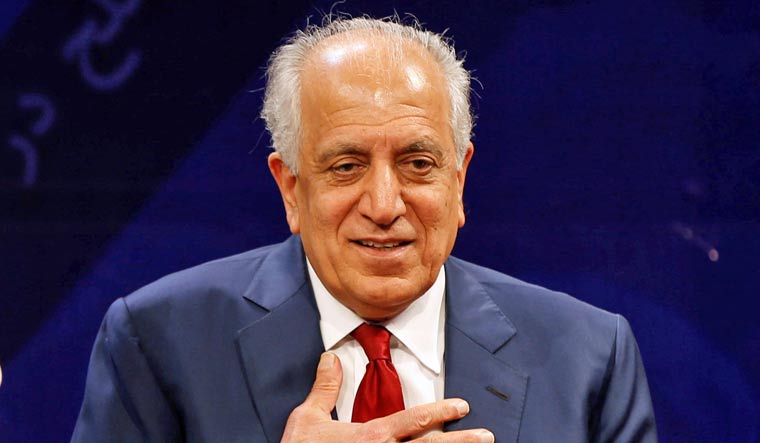US special representative for Afghanistan Zalmay Khalilzad arrived in Doha on December 6 for talks with Taliban.
The talk was abruptly halted by US President Donald Trump in September, just when they appeared on the verge of signing a deal that would have meant the end of America's longest war in Afghanistan, that could bring back thousands of troops. But the President did not see any security guarantees in return for ending the war as Taliban continued attacks on Afghan civilians. And in one such attack, an American soldier was killed.
Was the deal to materialise, it was also expected to pave the way towards direct talks between the Taliban and the government in Kabul and, ultimately, a possible peace agreement after more than 18 years of war.
"The US rejoined talks today in Doha. The focus of discussion will be the reduction of violence that leads to intra-Afghan negotiations and a ceasefire," said the US source briefed on efforts to end almost two decades of war in Afghanistan.
"Discussions were held on three topics, first, the US and the Taliban will resume their direct talks, and they will try to focus on the issue of reduction of violence and the intra-Afghan negotiations," said Shahzada Massoud, former advisor to Karzai.
Khalilzad had requested that the Afghan government step up efforts to create an inclusive delegation for the talks.
Trump during a surprise visit to a US military base in Afghanistan last week said the Taliban "wants to make a deal." Even during the stall in talks, US negotiator Zalmay Khalilzad has in recent weeks made a whistle-stop tour of nations with a stake in Afghan peace, including Pakistan.
Recently, he orchestrated a captive swap with help of Afghanistan President Ashraf Ghani in which the Taliban released an American and an Australian academic whom they had held hostage for three years. The Taliban have until now refused to negotiate with the Afghan government, which they consider a puppet of the US.
In a nod to concerns raised by Afghan President Ashraf Ghani, the State Department voiced support for a ceasefire — a key priority for Kabul before it enters negotiations with the Islamist insurgents.
"Ambassador Khalilzad will rejoin talks with the Taliban to discuss steps that could lead to intra-Afghan negotiations and a peaceful settlement of the war, specifically a reduction in violence that leads to a ceasefire," the State Department said on Wednesday as it announced the resumption of efforts to end the conflict.
Another important aspect of US' agreement with the Taliban besides withdrawal of troops is a commitment by the militants not to offer sanctuary to jihadists. The Taliban's relationship with Al-Qaeda was the main reason for the US invasion nearly 18 years ago.
But the thorny issues of power-sharing with the Taliban, the role of regional powers including Pakistan and India, and the fate of Ghani's administration remain unresolved.


